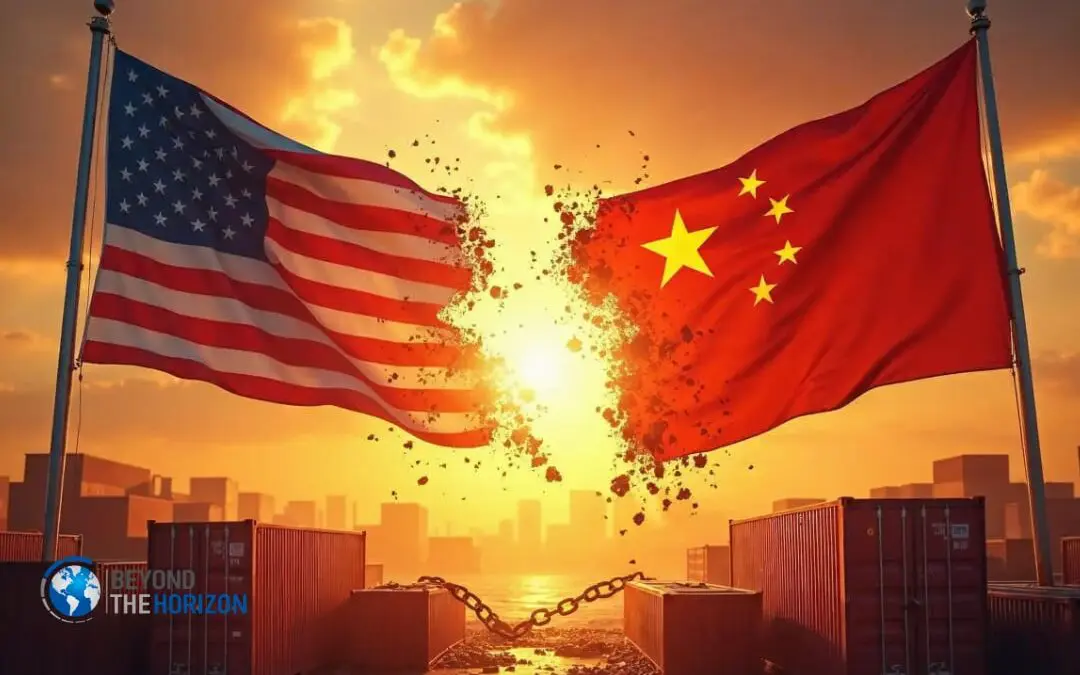## Navigating Trade Tensions: Japan’s Economic Strategy with China and the US
In the labyrinth of global politics and economic interests, Japan finds itself at a unique crossroad. Historically, it has successfully maintained robust economic relationships with the world’s two largest economies: China and the United States. Yet, the rising trade tensions between these superpowers pose a peculiar challenge to Japan’s diplomatic and economic strategy.
### Japan’s Economic Ties with China and the US
Japan’s economy, being highly integrated with both China and the United States, derives distinct benefits from each partnership. China, as Japan’s neighbor, is not only a major trading partner but also a significant source of imports and a vital market for Japanese exports. The cultural and geographic proximity, combined with deep economic ties, makes China an indispensable part of Japan’s economic landscape.
On the other hand, the United States has been Japan’s ally and a major economic partner for decades. This relationship is cemented not just by trade, but also through security agreements and shared strategic interests in maintaining stability in the Asia-Pacific region. The US market is crucial for Japanese products, and American technology and investment play a significant role in Japan’s economy.
### The Challenge of Balancing Relationships
The escalating trade tensions between China and the United States present a complex scenario for Japan. As tariffs, trade barriers, and technological restrictions grow between its two major partners, Japan could find its economic position and growth prospects caught in the crossfire. Navigating this landscape requires a delicate balance, ensuring that Japan strengthens its economy while not alienating important allies.
#### Economic Strategy Adaptation
In response to this evolving scenario, Japan may need to adapt its economic strategies. Diversifying trade partners could be a strategic move, reducing over-reliance on any single country and spreading economic risk. Strengthening ties with other Asian economies, the European Union, and emerging markets could provide Japan with a buffer against fluctuations in Sino-US relations.
Moreover, Japan could focus on sectors like technology and manufacturing, where it holds competitive advantages. By innovating in areas such as robotics, automotive, and renewable energy, Japan can enhance its economic resilience. This would not only fortify its global economic stance but also support domestic growth in a technologically evolving landscape.
#### Diplomatic Engagement
Diplomatically, Japan plays a significant role in pacifying tensions in the region. By actively engaging in dialogues, international forums, and bilateral discussions, Japan can facilitate a constructive conversation between China and the United States. As a trusted partner to both nations, Japan’s role in mediating and promoting mutual understanding could be pivotal in easing trade tensions.
### The Long-Term Perspective
Looking ahead, it is essential for Japan to maintain a long-term perspective. Economic policies and relationships must be built with an eye toward sustainable growth and stability. This not only involves adjusting trade practices and alliances in response to immediate challenges but also preparing for future economic, technological, and geopolitical shifts.
### Conclusion: Japan’s Path Forward
In conclusion, while the trade tensions between China and the United States place Japan in a challenging position, they also offer an opportunity to reassess and reinforce its economic and diplomatic strategies. By fostering a balanced approach and adapting to the changing dynamics, Japan can navigate these complexities and continue to thrive on the global stage. This delicate balancing act, if managed wisely, will not only safeguard Japan’s economic interests but also contribute to regional and global stability.
As Japan treads carefully on this diplomatic tightrope, the world watches on, perhaps to learn something from its approach to managing such intricate international relationships.










